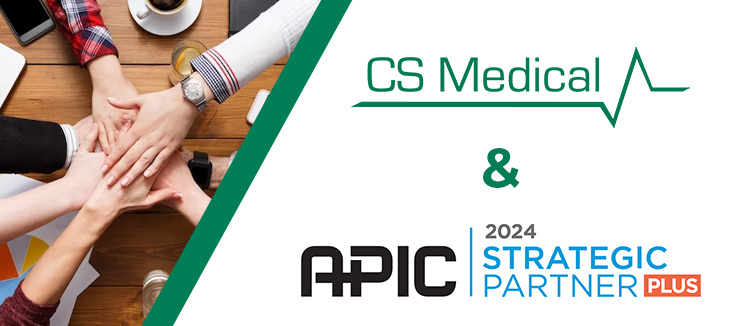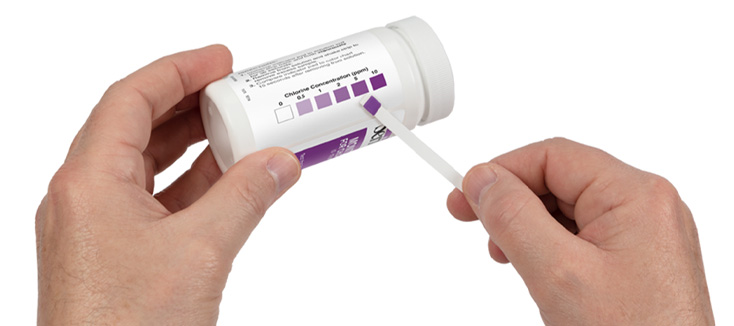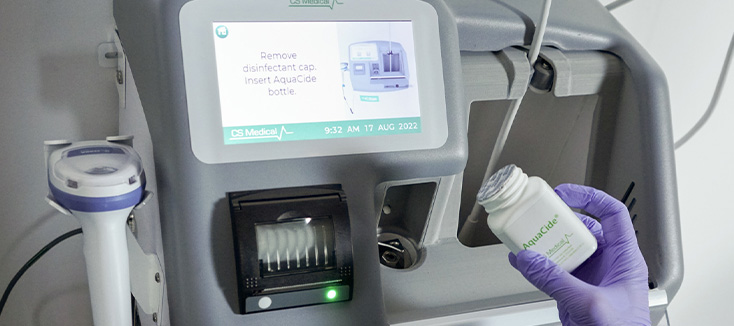Every year, The Joint Commission (TJC) releases a report detailing the top five most challenging requirements for healthcare facilities over the course of the previous year. The areas identified as most challenging are based on facilities’ compliance with TJC’s standards, National Patient Safety Goals, and accreditation and certification participation requirements. Eight kinds of facilities are surveyed and included in the report: Ambulatory Care, Behavioral Health Care and Human Services, Critical Access Hospitals, Home Care, Hospitals, Laboratories and Point-of-Care Testing, Nursing Care Centers, and Office-Based Surgery.
Of the eight types of facilities discussed in last year’s report, four shared a common failure. The report identifies the failure under IC.02.02.01, EP 2: “Performing intermediate and high-level disinfection and sterilization of medical equipment, devices, and supplies.” Of the eight types of facilities, the four identified as having problems in this area are the only four who perform high-level disinfection of ultrasound probes: Ambulatory Care, Critical Access Hospitals, Hospitals, and Office-Based Surgery. This means that, across the board, facilities are failing to properly reprocess semi-critical items like transesophageal echocardiogram, transvaginal, transrectal, and surface (TEE/TV/TR/S) ultrasound probes.
If ultrasound probes are not being properly cleaned and high-level disinfected each and every time they are used (yes, even if they are used with a probe cover), then the chances of spreading infection or disease from one patient to another are greatly heightened. These failings are dangerous at best and deadly at worst. Considering that many of the people who need to undergo TEE, transvaginal, transrectal, and surface ultrasound procedures are already immunocompromised, there is a special need to ensure the safety of ultrasound devices for each patient.
In the past, manually reprocessing these ultrasound probes was the only available method. The probes had to be pre-cleaned by hand, then cleaned in a tub of enzymatic solution, properly rinsed, then soaked in another tub of high-level disinfectant at the proper temperature for the correct amount of time, and rinsed well again. Controlling for these variables by hand is nearly impossible in a perfectly tranquil environment, forget about in a fast-paced, bustling healthcare facility. No wonder TJC has identified high-level disinfection as an area of concern. Fortunately, manual methods are no longer the only option for reprocessing ultrasound probes.
According to Dr. Helene Paxton, a veteran infectious disease consultant and member of the Association for Professionals in Infection Control and Epidemiology (APIC), “By automating the disinfection process, studies show a greater increase in participation, a higher standard of cleanliness and great savings in disinfection time, supplies, and environmental costs. Most importantly the time savings results in lower labor costs and improved patient care.” Utilizing an automated system, like Ethos® Automated Ultrasound Probe Cleaner Disinfector and TEEClean® Automated TEE Probe Cleaner Disinfector, to clean and high-level disinfect TEE, transvaginal, transrectal, and surface ultrasound probes is the simplest way to avoid the pitfall outlined by TJC.
Failing to address this issue at a facility can lead to serious consequences. On the one hand, improper disinfection of one of these devices can lead to the spread of a healthcare-associated infection (HAI) which can be extremely dangerous and even fatal for a patient. On the other hand, outdated and substandard methods for reprocessing can result in problems with accreditation and certification requirements. If proper protocols and standard operating procedures (SOPs) are not in place and being followed perfectly, an audit by TJC could prove disastrous for a facility.
An easy way to always be compliant is by implementing an automated system such as Ethos or TEEClean. These systems remove the guesswork and provide you with all the assurance (and documentation) you need to face your next TJC audit. Don’t let your facility be another statistic of failing to protect your patients from infection. Automation is the science-based key to consistent and high-quality cleaning and high-level disinfection for ultrasound probes.


